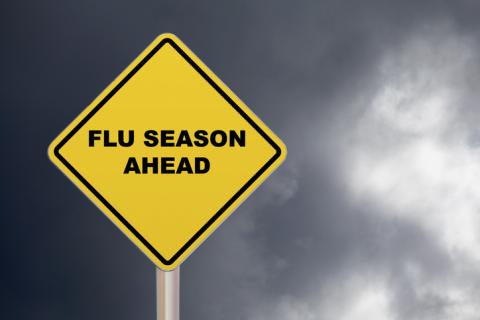Inoculate Yourself Against Phony Flu Products
Last year’s flu season was unusually severe. This year—which is incidentally the 100th anniversary of the devastating 1918 Spanish flu pandemic—it’s important to pay attention to the dangers of seasonal influenza.
The flu can be a serious illness for people of every age, and older adults are at highest risk of dangerous, even fatal, complications. The Centers for Disease Control and Prevention (CDC) says that up to 85 percent of flu-related deaths and 70 percent of hospitalizations are due to the effects of the flu in people older than 65.
The best way to avoid catching the flu is to get your flu shot every year. We can also help prevent the spread of the disease by washing our hands and avoiding contact with people who have the flu.
But preventive measures and immunization can’t prevent every case of the flu. Even seniors who are immunized may get it, though most likely a less severe case. People of every age who get the flu are advised to get plenty of rest, although light exercise is good, too—listen to your body. Drink plenty of fluids, and be alert for symptoms that might mean you need immediate medical care, such as difficulty breathing, pain or pressure in the chest or abdomen, dizziness, confusion or vomiting.
While there is no cure for the flu, prescription antiviral medications, such as Tamiflu, can reduce the severity. These prescription drugs are most effective when taken as soon as a person notices symptoms of the flu, such as fever, runny nose, fatigue, cough and muscle aches.
In March 2018, the U.S. Food and Drug Administration (FDA) issued a warning that scammers may take advantage of flu season by selling ineffective and fraudulent products claiming to prevent or treat the flu. FDA Commissioner Scott Gottlieb said, “As the flu makes people sick—and even causes deaths—unscrupulous actors may also be taking advantage of unsuspecting consumers by promoting their fraudulent products that have not been reviewed by the FDA to be safe and effective. The FDA is warning consumers to be alert, and try and steer clear of fraudulent flu products, which may be found online or in retail stores.”
Gottlieb says consumers should be on the lookout for the phony health claims these companies make, such as:
- “reduces severity and length of the flu”
- “boosts your immunity naturally without a flu shot”
- “safe and effective alternative to the flu vaccine”
- “prevents catching the flu”
- “effective treatment for the flu”
- “faster recovery from the flu”
- “supports your body’s natural immune defenses to fight off the flu”
The FDA also warns that some companies sell counterfeit antivirals, as well. Fraudulent online pharmacies offer to sell these drugs at a reduced price, without a prescription. There is no quality control. The drugs may have ineffective or even dangerous ingredients. Gottlieb says that although there are legitimate online pharmacies, consumers should consider it a red flag if an online pharmacy:
- allows you to buy prescription medicine without a prescription from your healthcare provider.
- does not have a U.S. state-licensed pharmacist available to answer your questions.
- offers very low prices that seem too good to be true.
- is located outside of the U.S. or ship worldwide.
Bottom line for seniors: Get your flu shot, take precautions to avoid the flu, and report flu symptoms to your healthcare provider right away.
